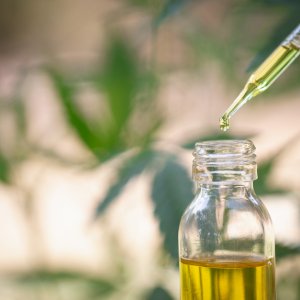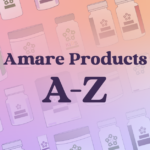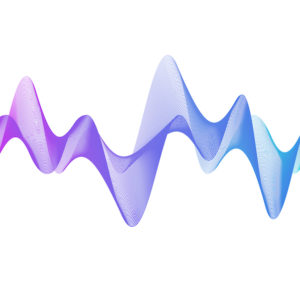In this fast-paced day and age, so many men, women, teens, and even children suffer from stress, anxiety, and depression. And all too often, the knee-jerk reaction is to pop a few magic pills for some relief. However, many people are aware of the negative short- and long-term side effects of mood-regulating drugs. Fortunately, there are many common nutraceuticals for stress and anxiety.
Understanding the Body’s Stress Response
A stress response begins when the brain receives a message from the eyes or ears about perceived danger. This sensory information goes to the amygdala for emotional processing. When it perceives danger, the amygdala sends a distress signal to the hypothalamus. This area of the brain communicates with the rest of the body through the autonomic nervous system, which includes the sympathetic and the parasympathetic nervous systems. The sympathetic nervous system (SNS) functions like a gas pedal in a car. It triggers the fight-or-flight response, providing the body with a burst of energy in response to stress. On the other hand, the parasympathetic nervous system (PNS) acts like a brake. It triggers the “rest and digest” response to calm the body down after the danger has passed.

When the sympathetic nervous system is activated, it signals the adrenal glands to release epinephrine (also known as adrenaline) into the bloodstream. This is what causes the physiological reactions to a stressful situation, including increased respiration, heart rate, pulse, and blood pressure. Epinephrine also triggers the release of blood sugar and fats from temporary storage sites in the body. These nutrients flood into the bloodstream, supplying energy to all parts of the body.
When the initial epinephrine surge subsides, the hypothalamus activates the HPA axis. It does so by releasing corticotropin-releasing hormone (CRH), which travels to the pituitary gland to trigger the release of adrenocorticotropic hormone (ACTH). This hormone tells the adrenal glands to release cortisol. Cortisol keeps the body revved up and on high alert.
When a stressful event subsides, cortisol levels fall, and the PNS —the “brake”— turns off the body’s stress response. At least that’s how it’s supposed to work.
Prolonged Stress
Unfortunately, many people stay in that fight-or-flight stress pattern. High-stress jobs, trauma or loss, unstable home environments, illness, and other factors cause chronic, or long-term, stress. Cortisol levels remain elevated. This affects literally every single body process and can contribute to a slew of health issues. These range from neurological and mood disorders to weight gain and diabetes to autoimmune disorders, cancer, and heart disease.
That’s why it’s important to find ways to alleviate stress. Finding healthy outlets to relieve stress and process the events which cause chronic stress can impact your health more than you know. Check out this post for some ways to begin managing your stress.
Nutraceuticals for Stress
When you live in the throes of a stressful lifestyle, whether short-term or long-term, there are some nutraceuticals that can help your body cope with stress. The best part is that natural products usually carry no side effects, so they are safe for everyone to use, even children who suffer from stress and anxiety.
Magnesium
Magnesium is a calming mineral that helps our brains cope with fear, anxiety, and nervousness. Symptoms of magnesium deficiency include paranoia, anxiety, depression, confusion, anger, nervousness, insomnia. Magnesium is quickly depleted during times of stress, so it’s important to supplement Mg during times of increased stress or worry. Purchase Magnesium Glycinate here.
5-HTP
5-Hydroxytryptophan is an amino acid that is involved in the production of serotonin. Serotonin is a neurotransmitter that plays a major role in the regulation of mood, as well as how the brain handles stress and anxiety. Our bodies readily absorb 5-HTP from an oral dose, with about 70% ending up in the bloodstream. It easily crosses the blood-brain barrier and effectively increases synthesis of serotonin. Buy it here.
Gingko Biloba
Ginkgo biloba is an extract derived from the leaves of the Chinese ginkgo tree. It contains flavonoids and terpenoids that have strong antioxidant properties. These may help slow the progression of age-related diseases. Additionally, research shows that Ginkgo can inhibit the body’s release of cortisol and the resulting rise in blood pressure. Order now.

Passionflower
Passion flower (Passiflora incarnata) is a climbing shrub native to the tropical parts of the United States. Herbalists tout a number of passion flower uses, including the improvement of sleep quality and duration. Additionally, scientists have discovered the benefits of passion flower as a nutraceutical for stress and anxiety. In fact, in one study, this natural tincture improved stress without side effects of drowsiness or impairment of job performance. Another study showed that the preoperative administration of passion flower suppressed the increase in anxiety before spinal anesthesia without changing psychomotor function test results, sedation level, or hemodynamics. Try Passionflower Extract.
L-Theanine
The alpha brain wave state is the frequency that helps us calm down when necessary and promotes feelings of deep relaxation. During a stress response, a phenomenon called “alpha blocking” may occur. This involves excessive beta activity and very little alpha.
One small study demonstrated that L-theanine increases power in the alpha frequency band, especially in patients with severe anxiety and stress. Other studies show similar results. Because L-theanine is an amino acid naturally found in green tea, these studies indicate it may be an affordable and safe method of controlling acute and chronic stress. Buy L-Theanine here.

Inositol
Inositol (or vitamin B8) is a naturally-occurring compound necessary for cell formation, nerve transmission and fat transport in the body. Our bodies make inositol, and it is also found in beans, nuts, cantaloupe, and wheat.
Because inositol also serves as a secondary messenger for cellular signaling in the brain, low levels of this compound result in a decline of serotonin and dopamine. This plays a direct role in stress, depression and anxiety. This study shows how inositol may help people who suffer anxiety, especially with panic attacks. Moreover, researchers report a lack of side effects from using this natural product.
B Vitamins
Because vitamin deficiencies in micronutrients can contribute to altered mood states (including work stress and psychiatric symptoms), supplementation may improve perceived stressed mood. Specifically, high doses of B vitamins may be effective in improving mood states. Learn about my favorite B Complex.
Lysine and Arginine
L-lysine and L-arginine are amino acids your body uses to manufacture proteins, hormones, enzymes, and antibodies. When taken together, they may normalize hormonal stress responses. Furthermore, this duo actually helps decrease cortisol levels as a mechanism of action to relieve stress. Get them here: Arginine, L-lysine.
Want to learn more about natural supplements? Check out my book. 75 Answers to Common Questions About Essential Oils and Supplements. Or download my free Ebook about Supplement Safety.











